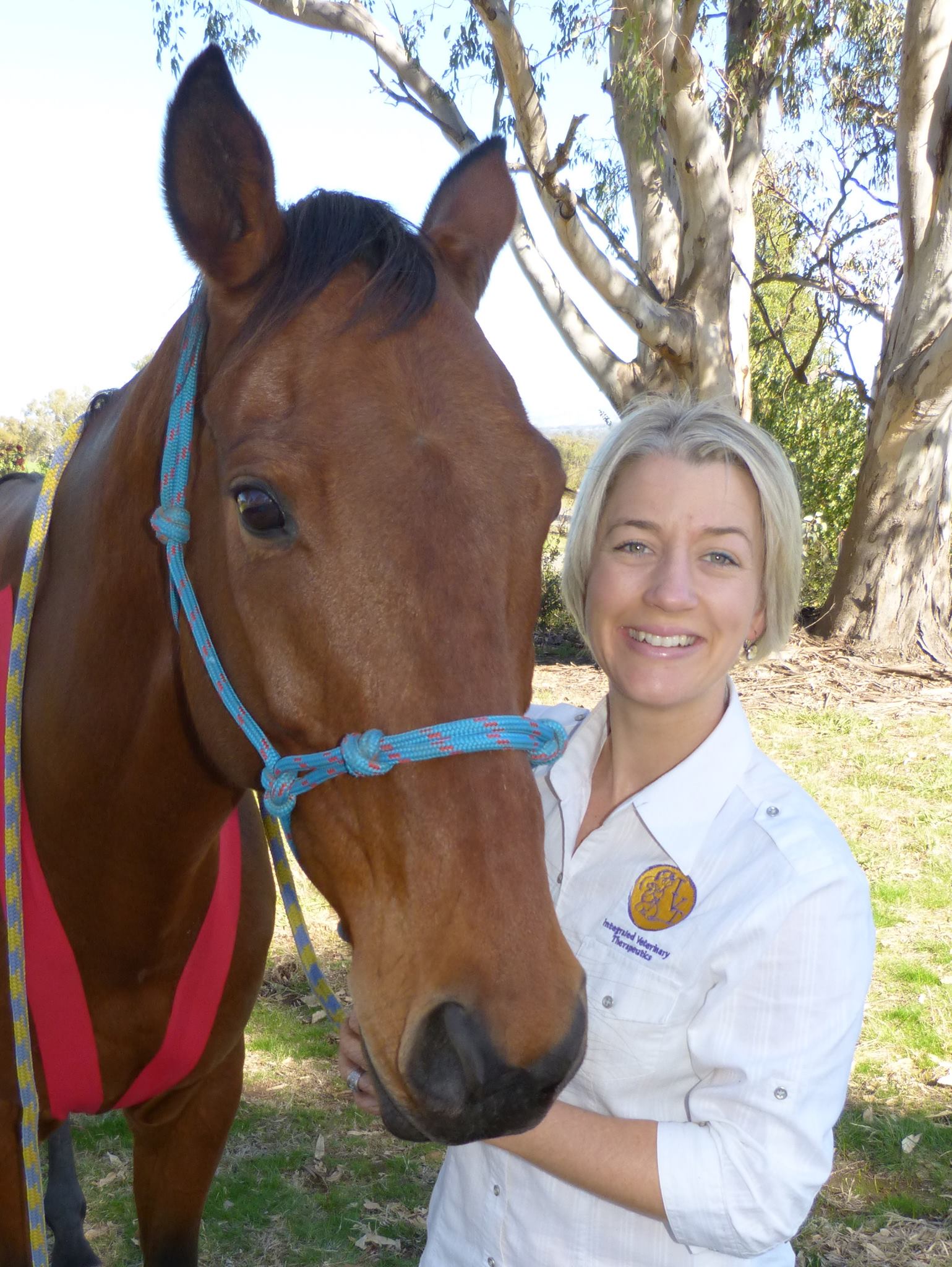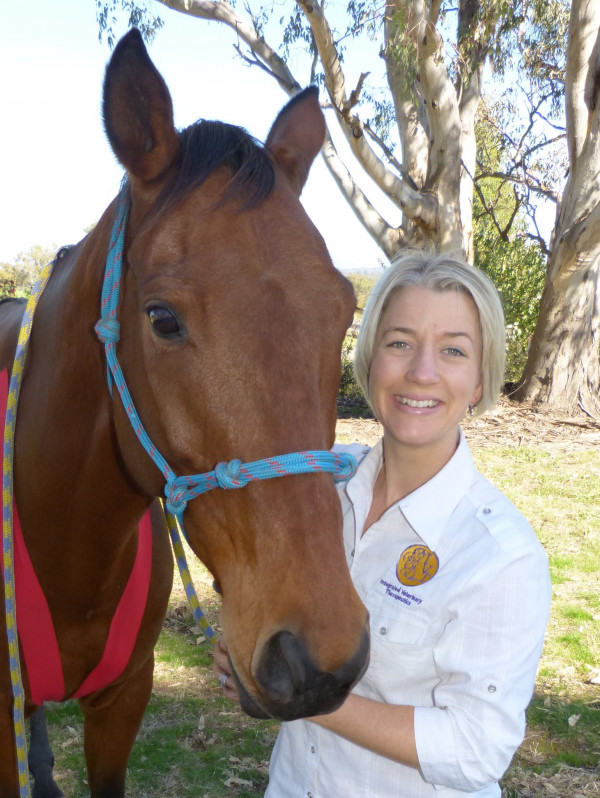I became interested in herbal medicine as I became increasingly frustrated with the limitations of veterinary medicine in treating the symptoms and our lack of supporting the immune function to improve healing and prevent further disease.
Our job as Veterinarians is to relieve the discomfort of your animals as quickly as possible and we do this exceptionally well!
My aim is to help you understand that supporting and nourishing your animals body systems is also a very important part of treatment. It is integral in healing the underlying problems and in preventing further complications/flare ups and disease. Diet also becomes a very important factor in your animals healing but we will discuss that at another date.
Herbal medicine or phytotherapy is the science of using plants, plant parts and preparations made from plants to treat and prevent diseases. Until the 1930's the British pharmacopoeas (still used in Australia) composed mostly of plant substances, simple compounds from nature and some animal products. Pharmacopoeas of the world today still contain a number of plant drugs. Interestingly the word 'drug' traditionally means 'dried plant material'! Synthetic new preparations have become more popular as the multinational pharmaceutical industries have boomed and plant substances have been elbowed out as unscientific and non- standardisable.
It is important to recognise plants have been utilised in many cultures for thousands of years with miraculous healings i.e. Chinese (western & traditional medicine used alongside each other), Tibetan, Egyption, Indian, native African, Nth American and Oceanic tribes.
About 3000 years ago, Ascepios of Thessaly, one of the great men of ancient medicine, gave the following sequence for the use of therapeutic agents: 'First the word- then the plant – Lastly the knife.' Modified by Rudolf Fritz Weiss to 'First the word, - then the herbal drug – then the great synthetic drug – and last the knife'. The important factor here is least invasive to most invasive.
The types of plants used range from those with powerful actions such as Digitalis to those with very gentle yet effective actions such as chamomile and mint. Many of the medications used in western medicine today were derived from plants, but generally an active principle of the plant has been utilised. The disadvantage of a synthetically produced drugs with technically the same active ingredient as a plant, is that the many protective properties of utilizing a whole plant have been disregarded this therefore leads to many of the side effects we experience with western medicines.
Herbs are not all 'safe', there are some very powerful herbs that have side effects that can be highly dangerous, therefore is important to know and understand the individual plants, their potential actions and indications. This is why it is important to consult with a herbalist.
Herbs are very complimentary to our treatments in veterinary medicine and can improve the outcome of your animals illness significantly and are complementary to western practices. The aim of herbal medicine is to support the animals body systems and promote healing rather than just treating and masking the symptoms. The benefit of including herbs in your animals treatment regime is to minimize the chance of recurrence and to improve recovery time.
Some simple, safe, wonderful remedies you can make up at home;
Diarrhoea or Constipation
Slippery Elm Bark Powder is used to treat irritation in the gut and bowel and it will completely repair the mucus lining of any affected area.
If a dog has an irritation due to surgery or a digestive upset it is good to give a course, even if there is little likelihood that an ulcer is involved.
A dose for a dog is the same as a human dose – 1 dessertspoon full and for a cat is one teaspoonful.
A single daily dose for a period of 12 weeks will allow complete healing or any ulceration or irritation in your animals gut.
For a dog and for a cat, it is good to mix the powder with a good quality organic natural yoghurt like Jalna,
If you are giving medications be aware that the absorption may be affected if given at the same time as slippery elm so depending on the medication give the slippery elm 30mins before or after the medication.
It can be mixed into a paste with chamomile and peppermint tea to aid digestion and reduce gut spasming.
Manuka honey – anti bacterial, anti fungal, supports healing - apply 2-3 times daily to any skin wounds or lumps, apply before taking for a walk or feeding to prevent it being licked off straight away
Colloidal silver: Its action as a broad spectrum antibiotic has never been matched by the modern pharmaceuticals in that it produces no drug resistance whatsoever.
Silver is completely safe to take, has no side effects and is cheap and simple to produce. Silver is best used in conjunction with other herbal treatments which support the immunity and the elimination required to completely resolve the infection.
Dose: 5 mls for Tiny and Small Breeds; 10 mls to 20mls for Medium and Large breeds.
Flaxseed oil: The balance of omega 3: omega 6 fatty acids in ours and the animals body is very important in maintaining optimal immune and cellular functions. Omega 3 fatty acids are volatile and easily destroyed above 40 degrees, the processing and cooking of dog foods especially commercial dog foods has meant that the omega 3 fatty acids levels are extremely low.
Skin conditions and arthritis will benefit from flaxseed oil – 1ml/kg daily for 3 weeks then 1 tablespoon/20kg daily as maintenance.
The following teas can be made up; 1 teaspoon made into a tea with 1 cup of boiling water and given with feed.
Rosehip tea is an excellent source of organic iron compounds and are higher in Vitamin C than almost any other natural substance. Because the Vitamin C is formed and stored by nature and partnered with Iron, Copper and a trace of Cobalt the Vitamin C is what is termed bio available. This allows it to be absorbed and utilised much more effectively than any manufactured ascorbate Vitamin C.
Rosehips play a major role in kidney and adrenal rehabilitation.
Dandelion tea: Liver problems – liver cleanser, general health & wellbeing, rehabilitation after illness. Also a tonic for spleen, kidneys and bladder
Fennel tea: Pancreatitis – stimulates the pancreas balance, promotes metabolic balance and digestion. Also great for gastrointestinal problems,
Chamomile tea: antispasmodic – great for gut problems and settling skin problems
Pepperment tea: great for nausea and to stimulate digestion
Some common conditions where herbs are of benefit;
- Skin allergies – great to minimise the use of cortisone and aid in preventing allergies from flaring up. Supporting the immune system is very important in preventing flare ups of allergies as Immune dysfunction is often an underlyng cause.
- Pain – arthritis, post surgery
- Healing/Post surgery
- Inflammatory bowel disease
- Cancer and/or chemotherapy support
- Urinary Incontinence
- Liver or kidney problems
The herbal preparations that I use can be used in conjunction with western medicines in a holistic approach to improve the outcome for you animal and aid in prevention.
Recent Case studies
Foofy – a 19 year old Siamese cat owned by one of our nurses – Samara, she had a severe cough, this was investigated and she was placed on cortisone with minimal improvement. Within a week of starting the herbal treatments she had improved and the cough is now well controlled.
Epileptic dog on high levels of medications to try to control his seizures – a seizure has not been seen by the owners since adding in the herbal support, his attitude to life has improved and the levels of medications are looking to be reduced.
Dog – hit by a car with a fractured pelvis – recovering on anti - inflammatory herbs and herbs to promote bone healing as well as CCMRT (canine & cat muscle release therapy). Amazingly comfortable and healing well.
Improvement in a 16 year old dalmation with senility – she often would get stuck in corners, she is much more settled and not getting stuck nearly as often after a few weeks of the herbal preparations.
Please do not hesitate to contact me if you have any further questions regarding herbal medicines for your animal.
Dr. Raquel Butler BVSc, EMRT/CCMRT practitioner, m BTAA, mCIVT, Herbal medicine



